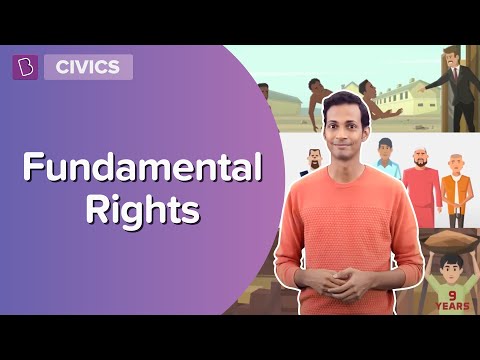According to the CBSE Syllabus 2023-24, this chapter has been removed from NCERT Class 7 Social Science textbook.
History is full of examples of people who have come together to fight against inequality and for issues of justice. In CBSE Notes Class 7 Social Science Civics Chapter 9 – Struggles for Equality, you will learn some of the ways in which people have struggled against inequality.
CBSE Notes Class 7 Social Science Civics Chapter 9 – Struggles for Equality
The Indian Constitution recognises all Indians as equal before the law and states that no person can be discriminated against because of their religion, sex, caste or whether they are rich or poor.
Factors why people are treated unequally in India
Some of these factors are:
- Poverty and the lack of resources.
- Discrimination on the basis of a person’s religion, caste and sex.
Struggles for equality
In India, there are several struggles in which people have come together to fight for a variety of issues. Some of the famous struggles are the women’s movement to raise issues of equality, Tawa Matsya Sangh in Madhya Pradesh etc. Beedi workers, fisherfolk, agricultural labourers, slum dwellers and each group is struggling for justice in its own way.
Tawa Matsya Sangh
Tawa Matsya Sangh (TMS) is a federation of Fisherworker’s cooperatives, an organisation fighting for the rights of the displaced forest dwellers of the Satpura forest in Madhya Pradesh. TMS organised rallies and a chakka jam (road blockade), demanding their right to continue fishing for their livelihood. In response to their protests, in 1996, the Madhya Pradesh government decided to give to the people displaced by the Tawa dam the fishing rights for the reservoir.
The Indian Constitution as a Living Document
The Indian Constitution recognises the equality of all persons. Movements and struggles for equality in India continuously refer to the Indian Constitution to make their point about equality and justice for all. By constantly referring to the Constitution, people use it as a ‘living document’, i.e., something that has real meaning in our lives.
To know about Fundamental Rights, watch the video below

We hope CBSE Notes for Class 7 Social Science Civics Chapter 9 help you prepare better for the exams. Keep learning and stay tuned for more updates on CBSE and NCERT.
Frequently Asked Questions on CBSE Class 7 Civics Notes Chapter 9 Struggles for Equality
What is poverty?
Poverty is a state or condition in which a person or community lacks the financial resources and essentials for a minimum standard of living.
Which state is Tawa Matsya Sangh located in?
Madhya Pradesh is where Tawa Matsya Sangh is located in.
What are fundamental rights?
Fundamental Rights are defined as basic human freedoms which every Indian citizen has the right to enjoy for proper and harmonious development of personality.
Comments